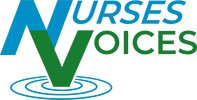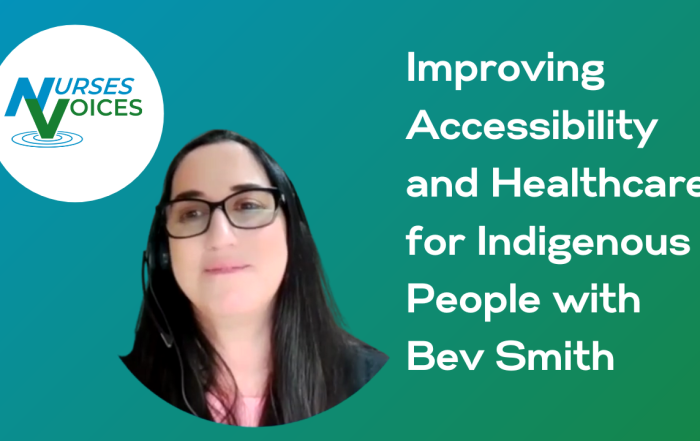Listening to Nurses: A Lesson in Leadership with Angela Wignall
Listening to Nurses: A Lesson in Leadership with Angela Wignall
In our final episode of Nurses’ Voices Season Three, we speak with Angela Wignall about the impact of COVID-19 as well as the current context of care on the health human resources crisis and the urgency of investing in quality practice environments as a critical priority for health system transformation. Trauma-informed leadership is one framework that can support leaders in designing resilient systems where nurses and others in health care thrive. Through the principles of safety, trustworthiness, peer support, mutuality, empowering voice and choice, and cultural and historical factors, trauma-informed leadership aims to centre the humans who care for humans in reimagining the future of health care in Canada.
If you would like to learn more, please contact our guest Angela Wignall:
Angela Wignall, RN, BSN, MA
Director, Professional Practice & Health Policy Implementation
Nurses and Nurse Practitioners of British Columbia
awignall@nnpbc.com
This is the final episode of Nurses’ Voices Season Three, and we will be going on hiatus. We have been so proud to meet with and amplify the voices of nurses doing amazing work across Canada these past three seasons. Please watch our Season One, Season Two, and Season Three episodes and share with your friends and networks. We hope to see you again soon!
Watch other episodes of Nurses’ Voices!
Listening to Nurses: A Lesson in Leadership with Angela Wignall
Listening to Nurses: A Lesson in Leadership with Angela Wignall In our final episode of Nurses' Voices Season Three, we speak with Angela Wignall about the impact of COVID-19 as well as the current context of care on the health human resources crisis and the urgency of investing in quality practice
Reducing Documentation Burden with Satinder Kaur
Reducing Documentation Burden with Satinder Kaur This episode focuses on how one organization is attempting to reduce documentation burden to prevent nurses’ burnout by identifying redundant or double documentation required to be completed by nurses. The goal is to reduce nurse’s workload related to documentation and information
Improving Accessibility and Healthcare for Indigenous People with Bev Smith
Improving Accessibility and Healthcare for Indigenous People with Bev Smith This episode highlights the Sharing Circle, a website that was developed with the aim to improve accessibility and healthcare for Indigenous people by the Nurses Specialized in Wound, Ostomy and Continence Canada (NSWOCC) Indigenous Wound, Ostomy and Continence
Facilitating Hospital Discharges on Weekends with Gillian Kozinka
Facilitating Hospital Discharges on Weekends with Gillian Kozinka This episode profiles nurse innovation in closing the system gap to facilitate discharges of patients on weekends to enable the right patient, right place, right care philosophy. This quality improvement initiative focused on improved multidisciplinary communication, resource utilisation and
The L’nu Nursing Initiative with Dawn Googoo
The L'nu Nursing Initiative with Dawn Googoo This episode highlights the L'nu Nursing Initiative (L'nu means Indigenous in the Mi'kmaw (Mi'kmaq is plural) language). The L'nu Nursing Initiative was created by the Nova Scotia Canadian Institute of Health Research Chair in Indigenous Health Nursing, Dr. Margot Latimer
New Curriculum Design to Help Graduates Be Practice Ready with Sara Lankshear
New Curriculum Design to Help Graduates Be Practice Ready with Sara Lankshear Welcome to the premiere episode of Nurses' Voices, Season Three: Change is Possible! This episode profiles Central Ontario’s first college standalone nursing degree program and the approaches taken for innovative curriculum design that actively engaged health











